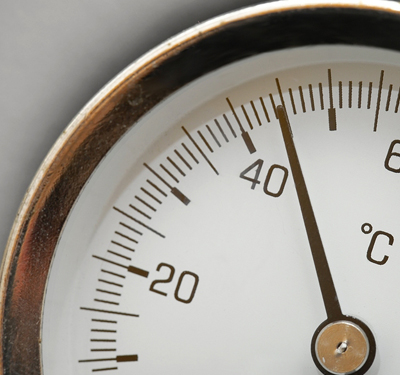

Double the Boiler Size and Fire the Engineer
Posted by Bob Schneider on in Facility Operations
That’s an old HVAC engineer joke. Often when we’re asked to evaluate comfort problems, we find this was more than just a joke.
A building’s cooling load is the rate of heat rejection required to keep it cool inside. Conversely, the heating load is the amount of added heat needed to keep it warm inside. Which is more critical? Unfortunately, improper sizing of either can create havoc with your HVAC and over-sizing almost always causes a problem.
Oversized heating systems often discharge air that is so warm it hangs up at the ceiling and the floors remain cool. Oversized packaged cooling units (rooftops, split systems, etc.) can be even more problematic. That’s because airconditioning units not only make the space cool, but also dry. If you’ve ever experienced a cool, humid space, one that most people describe as clammy or stuffy, then you’ve probably experienced an oversized airconditioning unit.
In order to understand what is happening we first have to remember what happens to a glass of ice water on a warm summer day—it collects moisture on the outside. The same thing happens on an airconditioning coil. When the coil is cold, moisture in the air is condensing on the coil and is carefully drained to a floor drain or the roof. With an oversized airconditioning unit, even on a hot summer day, the refrigeration compressor does not have to run all the time and when it’s off, there’s no dehumidification occurring. In addition, cycling the compressors on and off more frequently increases operating costs and reduces the system life.
If you’re guiding the heating and/or air conditioning sizing in a Lease or Criteria or an Owner’s Basis of Design, always state the desired outcome in temperature, for example, “72F space temperature in the winter and 74F, approximately 50% relative humidity in the summer.”

 Previous STORY
Previous STORY